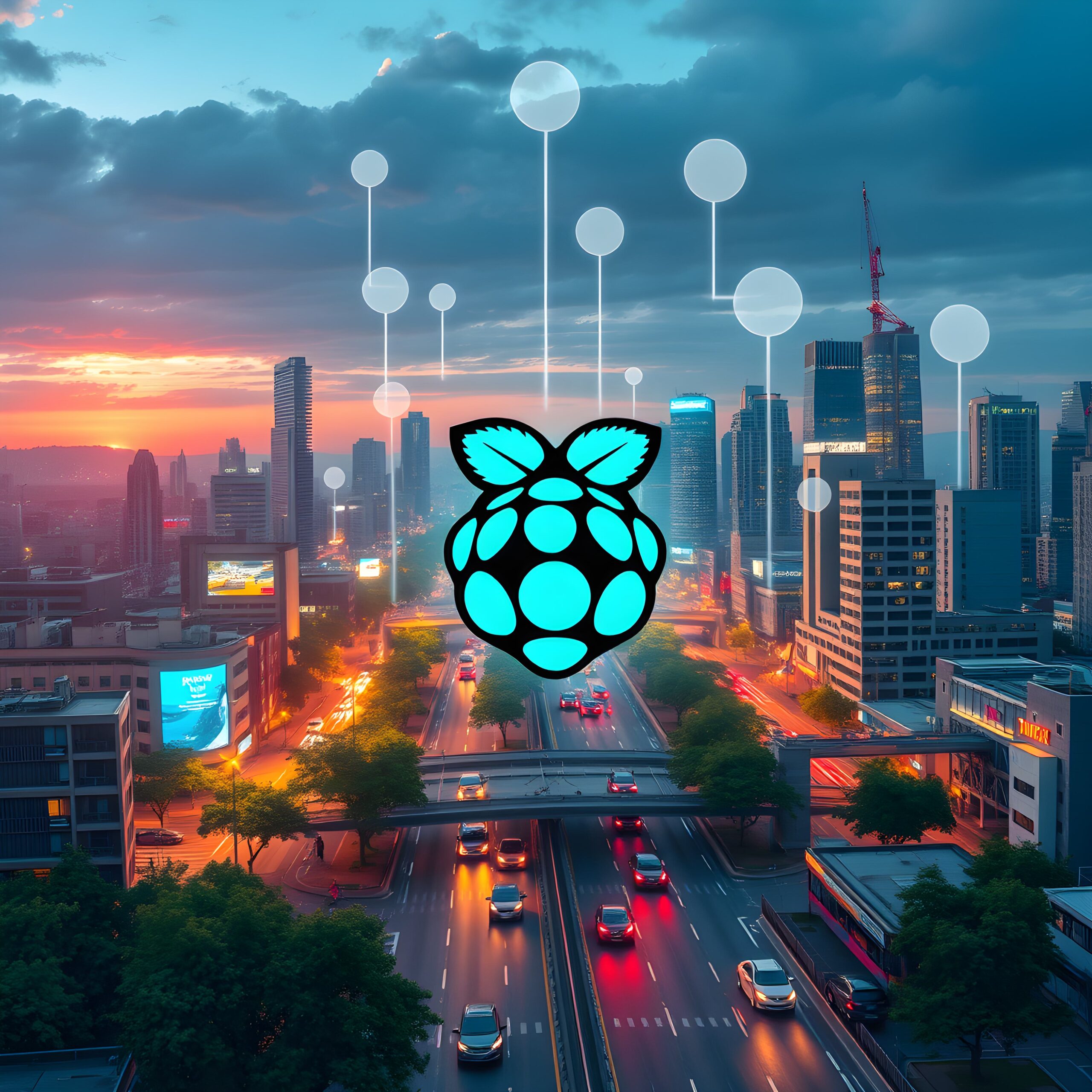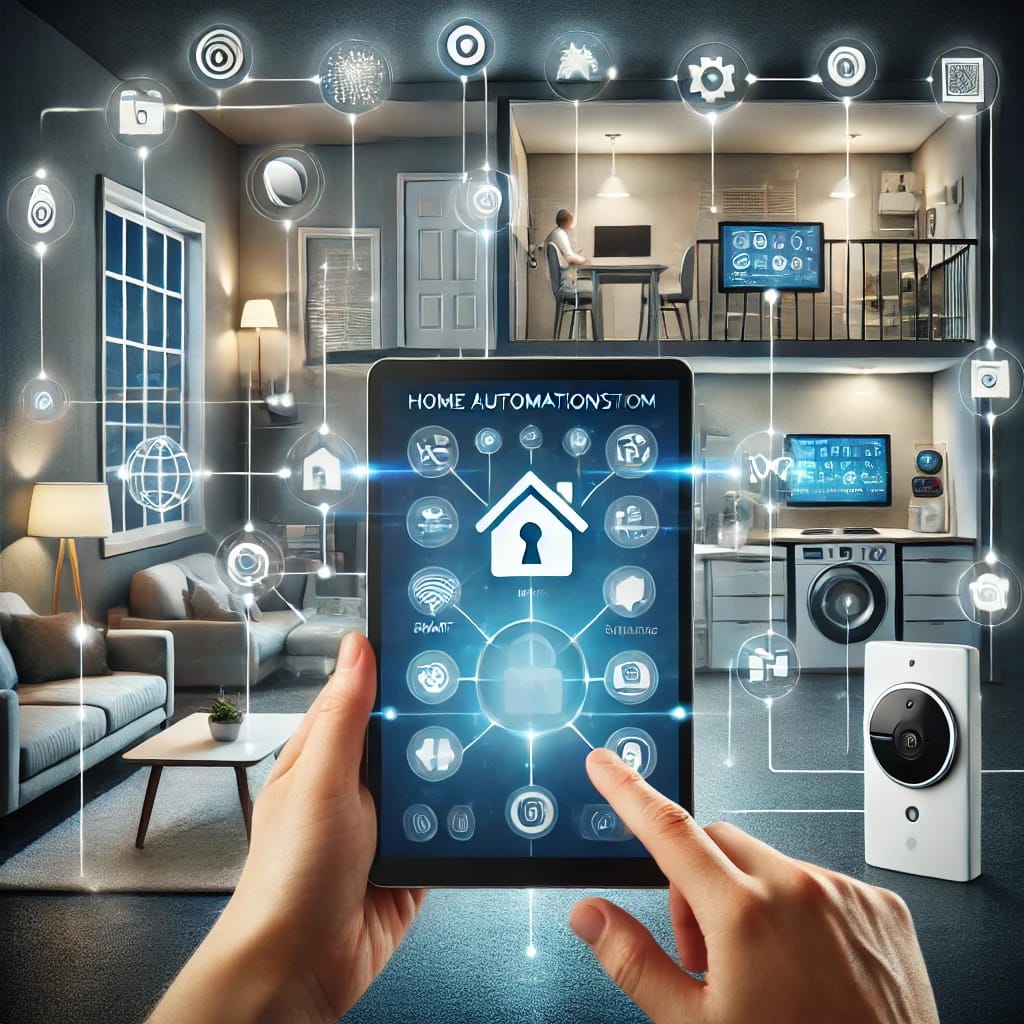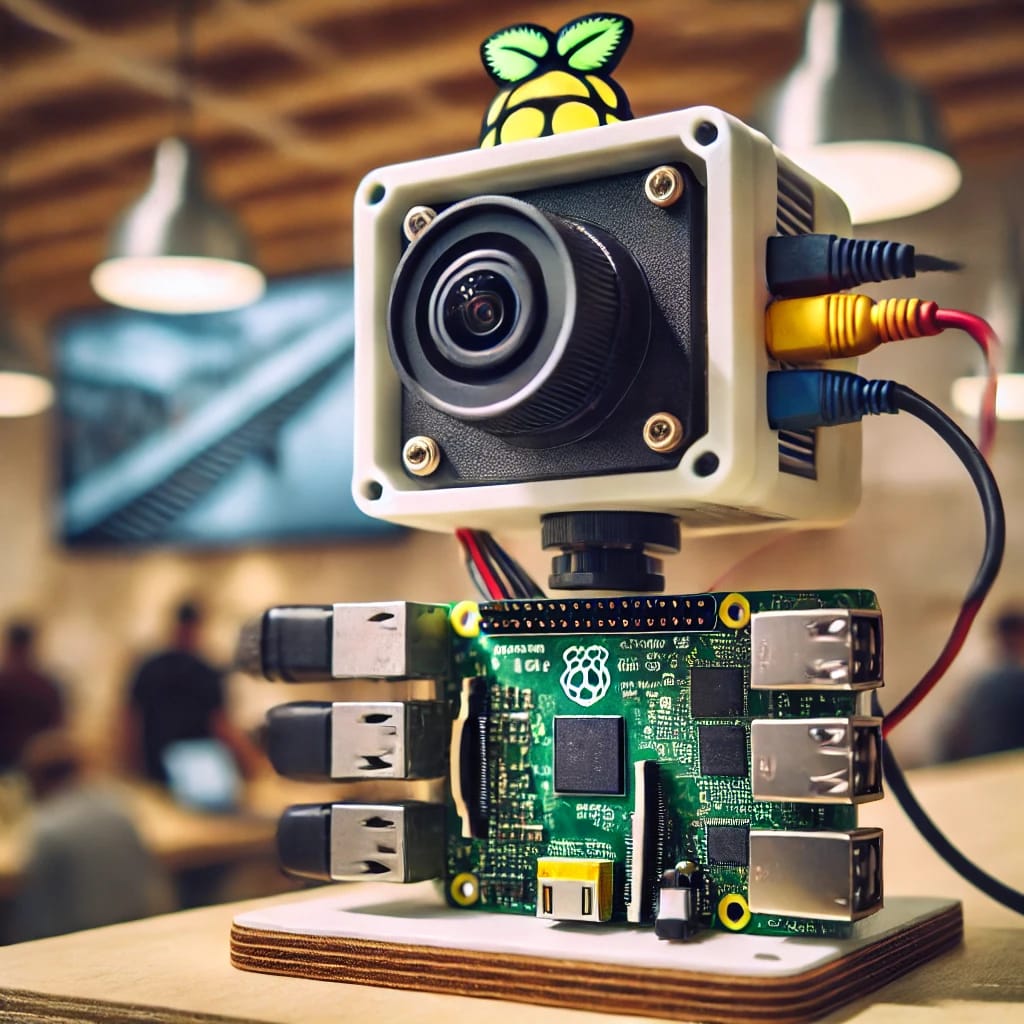This article explores how Raspberry Pi technology is being integrated into upcoming smart city projects. From traffic management to urban sustainability, this affordable computing platform is driving innovation in the design and management of cities worldwide.
Introduction to Raspberry Pi and Smart Cities
Raspberry Pi has become synonymous with low-cost, versatile computing solutions. Initially aimed at encouraging computer science education, the Raspberry Pi platform has evolved into a critical component for a wide range of applications, including the rapidly growing smart city movement. Smart cities leverage digital technologies to optimize city management and improve the quality of life for their residents. Raspberry Pi, with its affordability, adaptability, and vast ecosystem, is playing a pivotal role in shaping this future.
Smart cities are characterized by the integration of information and communication technologies (ICT) and Internet of Things (IoT) devices to manage infrastructure and services more efficiently. These include areas such as traffic management, waste management, energy conservation, and public safety. Raspberry Pi supports these initiatives by offering an affordable platform for developing sensors, control systems, and data analytics tools. Its widespread use in education and prototyping makes it an ideal platform for rapid development and testing of new technologies, which is essential for the fast-paced world of smart cities.
The integration of Raspberry Pi in smart city projects helps cities become more efficient, environmentally friendly, and cost-effective. This has major implications for urban sustainability, urban planning, and the future of cities worldwide. By using Raspberry Pi, cities can implement systems that monitor air quality, improve traffic management, optimize energy usage, and provide more reliable public services—all with a lower cost compared to traditional solutions.
2. Raspberry Pi in Traffic Management Systems
Traffic congestion and inefficiency in urban transportation networks are two of the biggest challenges facing modern cities. Managing traffic flows effectively is crucial for reducing emissions, improving public health, and ensuring that cities remain accessible and sustainable. Raspberry Pi is at the forefront of addressing these issues, helping cities develop real-time traffic management systems that are affordable and scalable.
The key to Raspberry Pi’s role in traffic management lies in its ability to integrate with various sensors, cameras, and data processing technologies. For example, Raspberry Pi can be connected to infrared sensors or cameras to monitor traffic volume and flow. The collected data can then be analyzed in real-time to adjust traffic lights dynamically, reduce congestion, and optimize travel routes. Raspberry Pi’s integration with cloud computing allows for even greater scalability, enabling cities to collect and analyze vast amounts of traffic data remotely.
Further, Raspberry Pi can be combined with machine learning algorithms to predict traffic patterns based on historical data. This predictive capability is essential for enabling cities to proactively address congestion and optimize traffic in real time. Raspberry Pi’s ability to interact with other IoT devices and smart infrastructure is a key factor in making traffic systems more efficient and adaptable, ultimately leading to smoother, faster commutes and fewer emissions from idle vehicles.
Cities around the world are already using Raspberry Pi in pilot programs aimed at improving traffic flow. In some cases, Raspberry Pi-based systems can automatically reroute traffic in response to accidents or road closures, ensuring that congestion is minimized and that emergency responders can reach destinations more quickly. This is a perfect example of how Raspberry Pi can serve as an integral part of a smart city’s infrastructure, helping to address one of the most pressing urban challenges: traffic congestion.
3. Raspberry Pi for Environmental Monitoring
Environmental sustainability is another cornerstone of smart cities. Urban centers are major contributors to pollution, resource depletion, and waste generation, all of which contribute to global environmental challenges. By implementing comprehensive environmental monitoring systems, cities can take a more proactive approach to managing these challenges. Raspberry Pi, with its ability to integrate various environmental sensors, is playing a central role in monitoring urban environments.
One of the most notable ways Raspberry Pi is being used is in the monitoring of air quality. Raspberry Pi can be connected to sensors that measure particulate matter, carbon monoxide, nitrogen dioxide, and other pollutants. These sensors can provide real-time data that helps city officials understand pollution levels and take action where necessary. Cities can use this data to adjust policies related to traffic, energy usage, and industrial emissions to ensure that pollution levels stay within safe limits.
Beyond air quality, Raspberry Pi can be utilized for other environmental monitoring tasks such as water usage, noise levels, and waste management. By integrating Raspberry Pi with IoT devices, cities can track water consumption, detect leaks, and optimize irrigation systems. Similarly, Raspberry Pi-based systems are being used to monitor noise pollution and waste accumulation, allowing cities to respond more efficiently to these issues. In all of these applications, Raspberry Pi’s low-cost and flexible nature makes it an ideal solution for cities looking to improve sustainability without breaking the budget.
Raspberry Pi’s integration into environmental monitoring systems also supports smart city initiatives like green building technologies and smart grids. As cities embrace more sustainable practices, Raspberry Pi-based systems can help track energy consumption, optimize heating and cooling systems in buildings, and contribute to a reduction in overall resource consumption.
4. Smart Lighting and Energy Management
Energy efficiency is a crucial goal for smart cities, especially as urban populations continue to grow. Street lighting alone accounts for a significant portion of a city’s energy consumption. Raspberry Pi is helping cities reduce energy usage by providing smart lighting solutions that adjust based on real-time data.
Smart lighting systems powered by Raspberry Pi use sensors to detect motion or ambient light levels, adjusting the brightness of street lights accordingly. For example, in less populated areas, street lights can be dimmed or turned off when no one is around, saving energy. In high-traffic areas, lighting can be increased to improve visibility and safety. This ability to dynamically adjust lighting based on real-time conditions can significantly reduce energy consumption while maintaining public safety.
Beyond lighting, Raspberry Pi is also being used for broader energy management initiatives. Raspberry Pi-based smart meters can be installed in homes and businesses to monitor energy usage in real time. This data can be used to identify inefficiencies, provide insights for energy-saving strategies, and enable better demand-response management for utilities.
By implementing these energy-saving technologies, cities can reduce their carbon footprint, lower energy costs, and improve overall urban sustainability. Raspberry Pi’s low cost and scalability make it an excellent choice for cities looking to implement energy management systems on a large scale.
5. Smart Healthcare with Raspberry Pi
Healthcare is one of the most important aspects of any smart city initiative. As urban populations grow, cities are faced with the challenge of providing accessible and efficient healthcare services. Raspberry Pi is helping to meet this challenge by enabling the development of low-cost healthcare devices and remote monitoring systems.
Raspberry Pi can be integrated into medical devices that monitor vital signs such as heart rate, blood pressure, temperature, and oxygen levels. These devices can collect data continuously and send it to healthcare providers in real-time, allowing for proactive health management and early detection of potential issues. In rural or underserved areas, where access to healthcare can be limited, Raspberry Pi-based telemedicine systems enable virtual consultations between patients and doctors.
Additionally, Raspberry Pi can be used in hospitals and clinics to improve the management of healthcare infrastructure. For example, Raspberry Pi-powered systems can track the availability of medical equipment, manage patient records, and automate administrative tasks. By streamlining these processes, Raspberry Pi helps healthcare systems operate more efficiently, ensuring that medical resources are used effectively and patients receive timely care.
As healthcare continues to move towards a more patient-centered, data-driven model, Raspberry Pi will play a key role in shaping the future of urban healthcare systems, especially in the context of smart cities.
6. Raspberry Pi and Public Safety Initiatives
Public safety is an essential pillar of any smart city. Cities are increasingly relying on technology to improve their emergency response systems, enhance law enforcement capabilities, and ensure the safety of their residents. Raspberry Pi’s ability to connect with various sensors and IoT devices makes it an ideal solution for enhancing public safety initiatives.
One of the most common applications of Raspberry Pi in public safety is surveillance. Raspberry Pi-based systems can integrate with cameras and motion sensors to monitor public spaces in real-time. These systems can detect suspicious behavior, alert security personnel, or even automatically trigger emergency responses. The affordability of Raspberry Pi means that such surveillance systems can be deployed in a wide range of public spaces, from busy city centers to parks and residential areas.
Raspberry Pi can also be used to improve emergency response systems. By integrating Raspberry Pi with IoT devices, cities can create systems that alert authorities to incidents such as fires, accidents, or security threats. This real-time data can be used to dispatch emergency services more quickly and efficiently, ensuring that responders can reach the scene of an emergency without unnecessary delays.
By improving surveillance and response capabilities, Raspberry Pi is helping cities create safer environments and respond more effectively to public safety concerns.
7. The Future of Raspberry Pi in Smart Cities
The future of Raspberry Pi in smart cities is incredibly promising. As cities continue to adopt more technology-driven solutions, the demand for affordable, flexible, and scalable platforms like Raspberry Pi will only grow. Upcoming advancements in Raspberry Pi’s hardware and software capabilities will further enhance its potential for driving smart city innovations.
Future versions of Raspberry Pi are expected to come with enhanced processing power, improved connectivity options, and better compatibility with next-generation technologies like 5G, AI, and edge computing. These upgrades will make Raspberry Pi even more powerful and suitable for large-scale smart city projects. Moreover, as the Raspberry Pi community continues to grow, the development of open-source solutions will foster even more innovation in the smart city space.
Raspberry Pi will also continue to benefit from collaborations with other IoT and smart city technologies. As smart cities become more interconnected, the ability of Raspberry Pi to integrate with a wide range of devices will ensure its role as a central hub for urban innovation. In the years ahead, Raspberry Pi will remain a vital tool in helping cities become smarter, more sustainable, and more efficient.
FAQ
1. What is Raspberry Pi, and why is it important for smart cities?
Raspberry Pi is a low-cost, compact computer used in various applications, including education, hobbyist projects, and industrial uses. In smart cities, its affordability, versatility, and ability to integrate with IoT devices make it an ideal platform for deploying various sensors, automation systems, and data analytics tools.
2. How does Raspberry Pi contribute to urban sustainability?
Raspberry Pi helps cities monitor environmental factors like air quality, water usage, and energy consumption. By connecting with sensors, Raspberry Pi enables real-time data collection, helping cities optimize resource usage and reduce their environmental impact.
3. Can Raspberry Pi be used in traffic management?
Yes, Raspberry Pi can be connected to sensors and cameras to monitor traffic flow. It helps in managing traffic light timings, detecting congestion, and providing real-time traffic data for better urban mobility planning.
4. How is Raspberry Pi used in public safety systems?
Raspberry Pi can power surveillance systems by integrating cameras and motion detectors. It helps in monitoring public spaces and alerting authorities to incidents in real time, enhancing emergency response times and overall public safety.
5. What role does Raspberry Pi play in healthcare within smart cities?
Raspberry Pi supports the development of low-cost medical devices for monitoring vital signs and telemedicine applications, enabling remote consultations and patient monitoring, which improves healthcare accessibility in urban areas.
6. What are the challenges of using Raspberry Pi in smart city projects?
Challenges include limited processing power for highly complex tasks, network connectivity issues, and integration with legacy infrastructure. However, these can often be mitigated by combining Raspberry Pi with other advanced technologies like edge computing.
7. How does Raspberry Pi help in managing energy consumption?
Raspberry Pi-based systems can monitor energy usage in buildings and street lighting. They can adjust light intensity based on real-time conditions, reducing energy consumption, and improving sustainability efforts.
8. Is Raspberry Pi capable of integrating with other smart city technologies?
Yes, Raspberry Pi is highly versatile and can integrate with various IoT devices, sensors, and cloud platforms, making it a cornerstone of smart city ecosystems. Its open-source nature promotes innovation and customization in smart city solutions.
9. Can Raspberry Pi help with waste management in smart cities?
Raspberry Pi can be used to monitor waste levels in bins and optimize waste collection routes. By collecting and analyzing data, Raspberry Pi helps ensure efficient waste management, reducing costs and environmental impact.

10. How does Raspberry Pi enhance traffic flow in smart cities?
Raspberry Pi can analyze real-time data from traffic sensors and cameras to adjust traffic signal timings, improving traffic flow and reducing congestion. It can also be used to direct drivers to less congested routes.
11. How can Raspberry Pi contribute to smart lighting systems?
Raspberry Pi helps cities implement smart lighting by controlling the intensity of street lights based on ambient light levels or motion detection. This reduces energy usage while maintaining public safety.
12. Can Raspberry Pi be used for predictive maintenance in smart cities?
Yes, Raspberry Pi can monitor infrastructure such as bridges, roads, and pipelines using sensors. It collects data to predict when maintenance is needed, reducing the likelihood of failures and improving city infrastructure resilience.
13. Is Raspberry Pi used for environmental monitoring in smart cities?
Yes, Raspberry Pi can be used to monitor air quality, water quality, noise levels, and other environmental factors. These systems collect data that helps cities take proactive actions to maintain environmental health.
14. What are the advantages of using Raspberry Pi over other computing platforms for smart city applications?
Raspberry Pi offers a low-cost, energy-efficient platform with a large support community and the ability to interface with a variety of sensors. Its flexibility and scalability make it suitable for both small-scale projects and large city-wide systems.
15. How do cities benefit from using Raspberry Pi in their smart city initiatives?
Cities benefit from Raspberry Pi by being able to deploy affordable, scalable, and customizable smart city solutions. Raspberry Pi enables cost-effective solutions for traffic management, environmental monitoring, energy optimization, and public safety, making it easier for cities to improve efficiency and quality of life.






